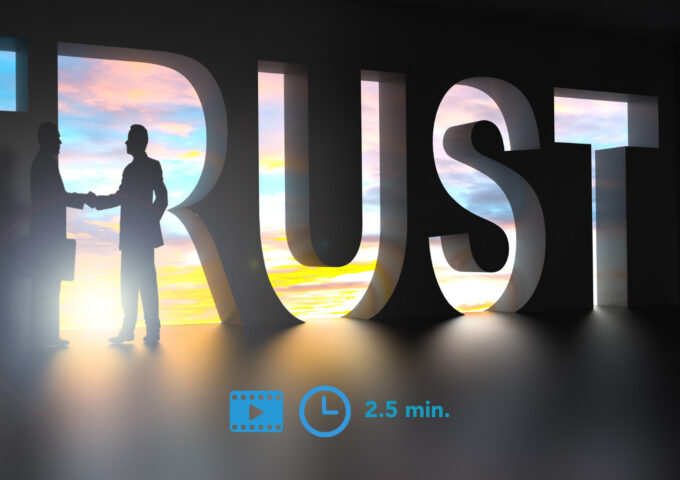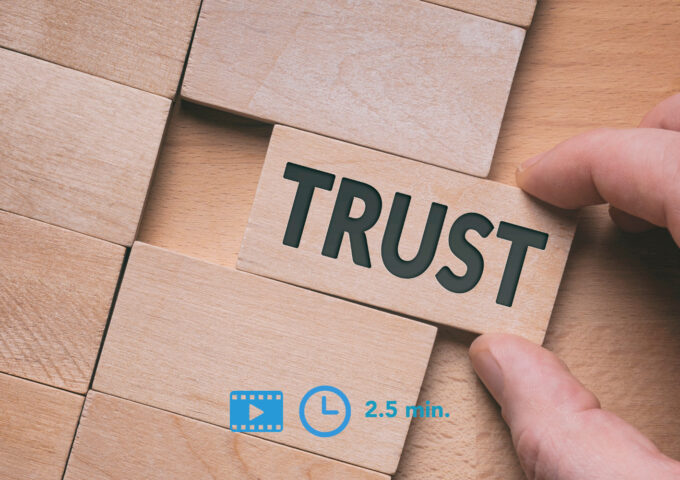
WATCH: What is the Neurochemical of Trust?
Today, I want to talk about ‘Understanding Trust’. Because we’re living in a very untrusting world at the moment. There’s a lot of lack of trust in media, in what we read: Who’s saying what? Who do we trust? What do we trust? Where do we get information that we can trust? And, also how do we trust other people who think differently to us?
Fundamental Human Need
It begins at the very beginning. The moment we’re born. We are actually born about two years premature. We’re completely dependent on our parents and that goes on through childhood, adulthood and even now as mature adults, we are completely dependent on other people. For our clothing, for our food, for the things that we have around us. And, we need to know that we do stuff for society, for the good of others, and that other people will do the same for us. And that we can trust in that. That’s what makes us feel safe.
And there’s a key hormone or neuropeptide, that helps with this.
Oxytocin
That creates a sense of ‘Bonding and Belonging’ with others. And it starts from the moment we’re born in bonding with our mother. And, it also starts with you know, as we socialize with groups. And we feel supported by groups, our family, our friends. So that the more we have a social network, the more we can actually trust and overcome, and have resilience, for when we have a problem, when we have an upset. And, that has a lot to do with Oxytocin being produced within those groups.
Fairness
Fairness with others that we have an equitable situation. I’ll do something for you, and you’ll do something for me. And, it also creates a situation that not many people know.
In-Group
Believe I’m part of an in-group, where there’s lots of oxytocin. We’re all together and we’re all good. I will trust people within my In-Group.
Empathy
You will trust people and you will have more empathy than people in an ‘Out-Group’. So, the more we have an In-Group, the more we also have an people who don’t belong to ‘our’ group.
Out-Group
That means that if there’s people from, you know, a different political ideal or they have different beliefs and values, we’ll have less empathy for them. And, if something happens to them, we might just go “so what?”. Where if it’s something that happens to our own group, we feel like a passionate sense of empathy in that.
So, what you need to do is, you need to think about how you can build more of an in-group with lots of other different types of people. Look at what you have in common. Do you have hobbies you can share? Do you have something that you can create that creates a sense of in-group? A sense of trust and a sense of empathy with others.
So, when it comes to trust,
Stay Curious!
With best regards,
David Klaasen
Talent4Performance help business leaders clarify complexity. We inspire people and drive continuous performance improvement, so they can convert thinking into action and results.
©David Klaasen – 2023



